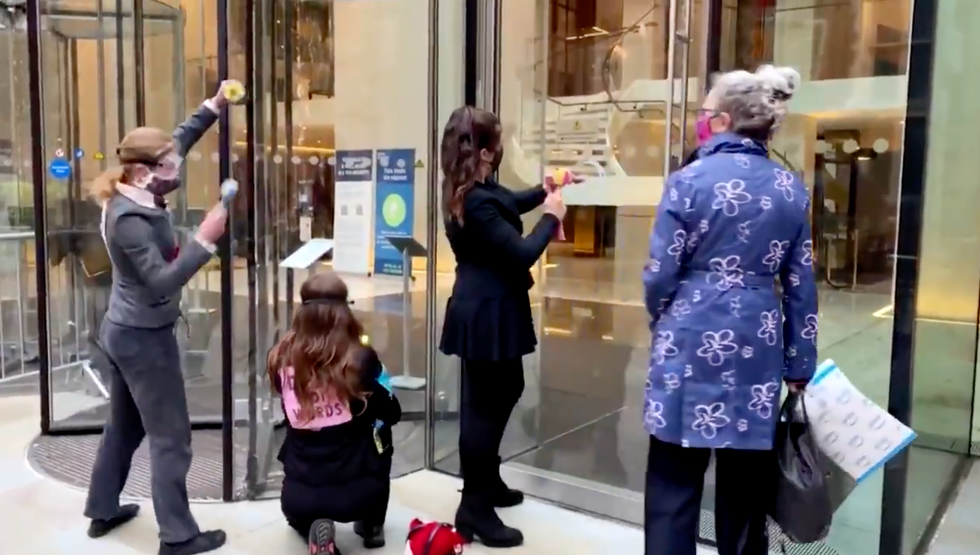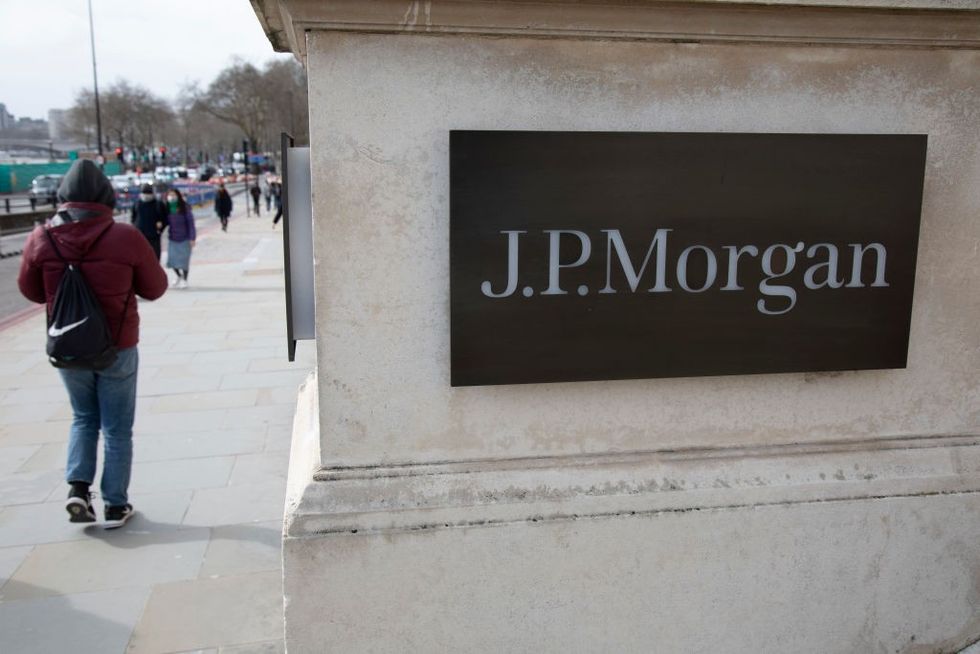Five Extinction Rebellion campaigners used weapons to cause £350,000 worth of damage
Don't Miss
Most Read
Trending on GB News
A group of climate activists have been convicted of smashing a glass door at JPMorgan’s European headquarters.
Five Extinction Rebellion campaigners used weapons including hammers and chisel to cause £350,000 worth of damage.
The judge told Amy Pritchard, 38, Stephanie Aylett, 29, Adelheid Russenberger, 32, Rosemary Webster, 66, and Pamela Bellinger, 66 that their beliefs did not "afford them a defence".
A custom-made revolving door and a large panel were smashed during the protest at the US bank’s Victoria Embankment offices in London.

A group of climate activists have been convicted of smashing a glass door at JPMorgan’s European headquarters
Reuters
Pritchard told the court that the policies of JP Morgan had led to the deaths of "hundreds of thousands of children."
However, Judge Silas Reid urged the jury to "put aside sympathy or prejudice" as the trial began.
He said: "You may have views about those actions or organisations, you may have views about climate change.
"This is not a trial about climate change. It is a trial about criminal damage.
"It is nothing more than that and nothing less."
LATEST DEVELOPMENTS:
The five protesters were convicted of causing criminal damage following a two week trial. They will be sentenced on June 7.
Judge Reid told the jury: "Thank you for your patience in relation to this case. The reasons behind their protests don’t afford them a defence in this case.
"None of these defendants did these things for the fun of it, or because they are criminal people.
"They did it because they honestly believed it was something they needed to do. Well, they are not allowed to do it. It is a crime."
Prosecutor Brett Weaver previously said the activists made their way to JP Morgan early on September 1, 2021.

One protester told the court that the policies of JP Morgan had led to the deaths of 'hundreds of thousands of children'
Getty
The court heard: "Security staff sought to usher them away but it was only once the glass had been damaged that the defendants and their companions moved back over the temporary railings and onto the street."
Police attended the scene and found a group of protestors on the ground in a circle in front of the building.
Weaver said the protestors left "damage to the revolving door, one of the hinged doors, and the larger glass panel which surrounded the hinged door."
Russenberger told jurors: "Protest and direct action can, and does, lead to change, it’s through protest and direct action that we have the right to vote even if we don’t own property.
"That women have the right to vote, it led to the civil rights in the UK and it contributed to anti-apartheid in South African, it’s given us LGBT rights and disability rights.
"So, breaking windows as part of civil disobedience and direct action, could give us the change we needed."









